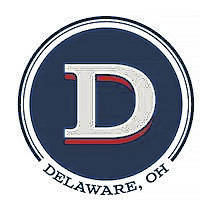
Following its Monday meeting, Delaware City Council underwent an ethics training course to refreshen and re-establish the guidelines in place for elected officials. The training was led by City Attorney Darren Shulman.
Shulman began by highlighting the three sources of ethical considerations: The Ohio Revised Code (ORC) and United States Code, the City of Delaware Ethics Policy and Charter, and the appearance of impropriety. He added the penalties that can be associated with violations of the ORC can be criminal charges.
However, he said the appearance of impropriety, while carrying no potential penalties, is, perhaps, the most important. In explaining what the appearance of impropriety can look like, he said, “Yeah, you didn’t do anything wrong. It’s totally legal, and I can’t do anything to you and the ethics commission isn’t going to do anything to you. But you risk people having a loss of faith in their elected officials.”
With several city council seats coming open this year, Shulman discussed how city council members should handle requests for political support. For instance, he said that while there are no laws prohibiting council members from asking city employees to sign their petition to run for office, asking could present an awkward situation and is not advisable.
He added receiving campaign help from a city employee, whether it be an endorsement, putting up signs, or going door to door, isn’t prohibited either but could present an appearance of impropriety.
As for campaign donations, Shulman said council members aren’t permitted to solicit campaign donations from city employees. However, he said council members may accept voluntary, unsolicited campaign donations from city employees.
Conflict of interest was another point of emphasis for Shulman, which he said is defined as “when an employee is in a position to influence a decision or have business dealings on behalf of the city that might result in a personal gain for the employee, an employee’s relatives, or business associates.”
Personal gains, he said, can result from situations where an employee, and employee’s relatives, or business associates receive a kickback, bribe, substantial gift, or special consideration because of a transaction or business dealing involving the city.
Asked about instances of campaign donations being made to council members by those who have had business before council in the past, or are likely to have business before council in the future, Shulman told The Gazette campaign contributions “aren’t covered by the ethics law’s treatment of conflict of interest, which has criminal penalties, because they are not benefiting the individual personally.”
He said campaign contributions are public record, however, and the public is “certainly free to draw their own conclusions and vote accordingly.”
“When I teach about the appearance of impropriety, that is a consideration I’d like staff and council to consider above and beyond the legal requirements in the interest of maintaining the public’s faith in government,” Shulman said. “With an elected official, this again comes down to the public and the ballot box.”
He added, “To me, the key is transparency – giving the public the information so they can make an informed decision.”


